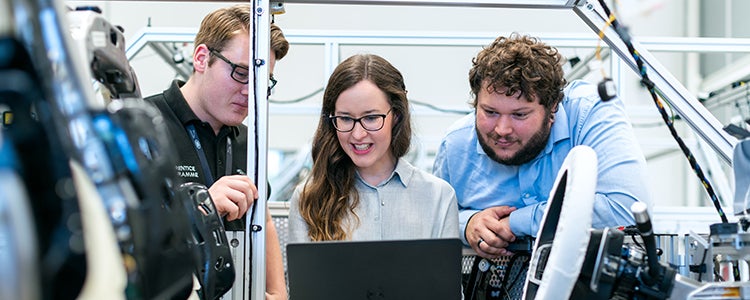
How do I choose a job? That’s a big question. A good question to ask instead is: what am I passionate about that I want to explore further?
You might be wondering where you should start and what steps you need to take now to get to your dream job in the future. It’s normal to feel overwhelmed when asked by your family or others in your life what you’ll do for your career. The best advice is to do your research and make tangible goals to achieve your plans.
The best job you’ll have is one that makes you happy, motivated, and ready to learn. Your future career path doesn’t have to be linear or take a traditional path, but it should fit into what you want and your goals.
Even better, your job may not even exist right now! If you think about it, did the idea of being an influencer as a career exist 20 years ago? Or what about making money on YouTube? There are so many growing fields and new professions starting every day, so there's no need to limit your mindset on what you may be doing in the future.
From someone who started university with no clue about the career path I wanted to take, to now having a solid idea for after graduation, I’ll share my tips with you — here’s the ultimate guide to planning your career.
How to choose a career?
Choosing a career is a big decision, but once you have an idea of what you want to do, you’ll know your next steps.Explore careers with co-op
Use co-op to your advantage to learn more about yourself and the future direction of your career.

What can you do with a ____ degree?
- Arts: If you’re interested in other cultures, art, literature, history, human relationships, society, politics, law… you’re suited for an arts degree.
- Business: Business is the basis of our society, and society is always changing.
- Communications: A communications degree provides you with all the necessary skills to apply to every field you can think of — arts, entertainment, sports, health, business, science, and technology!
- Economics: Bring your passion for business, technology, human behaviour, math, and the social sciences into one degree.
- Engineering: Build, design, fix, create, code, and invent.
- Environment: A field of study that’s perfect for people who are passionate about taking care of our cities and communities, our climate, and our Earth.
- Health: Health and helping professionals will continue to be in demand and there may be new career options available.
- Math: Mathematics and computer science are at the heart of so many things we touch on a day-to-day basis.
- Science: Are you curious to understand everything from our bodies to our environment?
Understanding your interests and what you like doing is the first tip to narrowing a job path down. With 100+ undergraduate programs, there are many ways to learn here at Waterloo.
Do you want to complete equations and find solutions to real-world issues, learn about the world around you in labs, or even discuss philosophical topics with classmates? Knowing what you like (and don’t like) will help you choose your degree and ultimately put you on the career path you need to be on to meet your personal goals.
Waterloo is #1 in Canada for graduate employment rate (QS Graduate Employability Rankings 2022) so explore your interests with full confidence. Our programs will set you up for future careers in every field, and through classes, co-op, and hands-on learning, you’ll gain skills that'll help you be successful.

How to become a ____?
What do you want to become? Finish the sentence with the career that interests you. These articles will provide you with the steps to bring you closer to seeing yourself in these careers. Loaded with tips and insights from students who have already been down these paths, learn firsthand what it takes and what others have learned along the way.
- Doctor: Is medical school the place for you? Learn the path doctors, nurses, and others take to work in the medical field.
- Geologist or Geoscientist: Learn about the world around you. Take samples, work in labs, work on-site — geology is a diverse job.
- Lawyer: There’s a law specialization for almost every passion, so find what interests you.
- Pharmacist: Help the health of your community through prescriptions, vaccinations, or finding a remedy to an ailment, pharmacists are on the front lines of health care, ensuring the safe and effective delivery of drugs.
- Teacher: Teach future generations skills to allow them to reach their goals.
This is an important question to ask yourself when you think about different jobs. What did others do to get there and what steps do you need to take? Some pathways will take a lot longer and many years of further education, but some will get you started with hands-on experience day one.
Whether you already know the career you want and have the steppingstones for it now, or just discovered a new path, there are so many jobs out there where you’ll find your place. With a little bit of research and planning, you’ll be able to do anything. Hope this helped!






